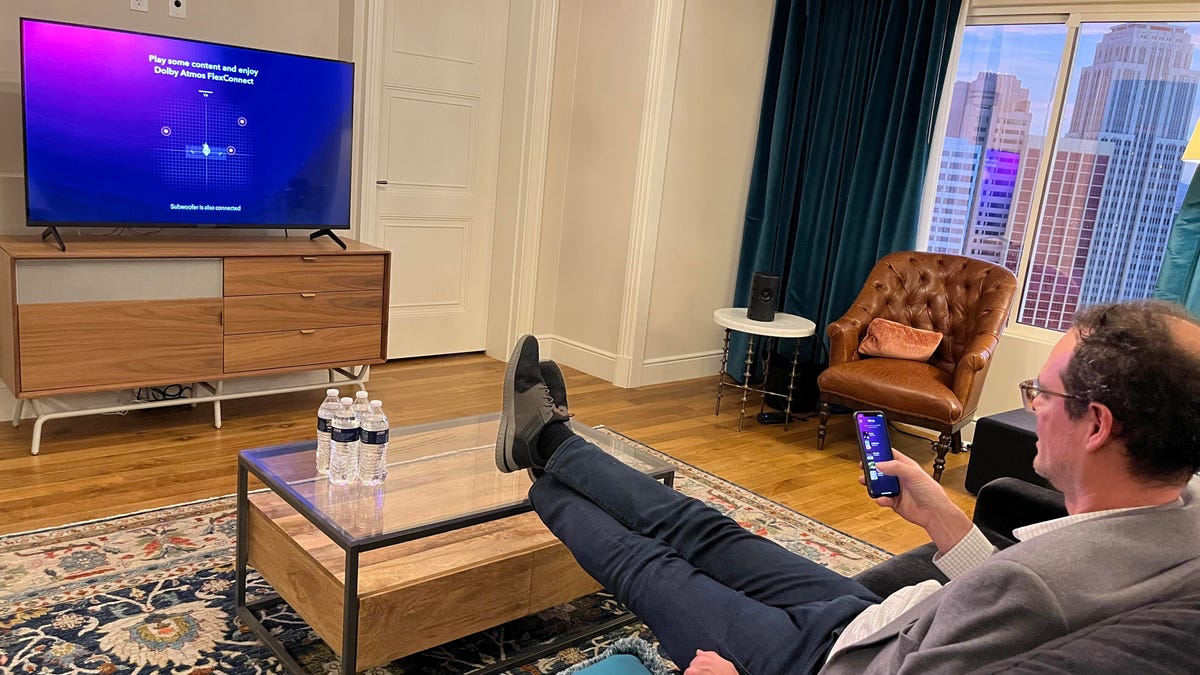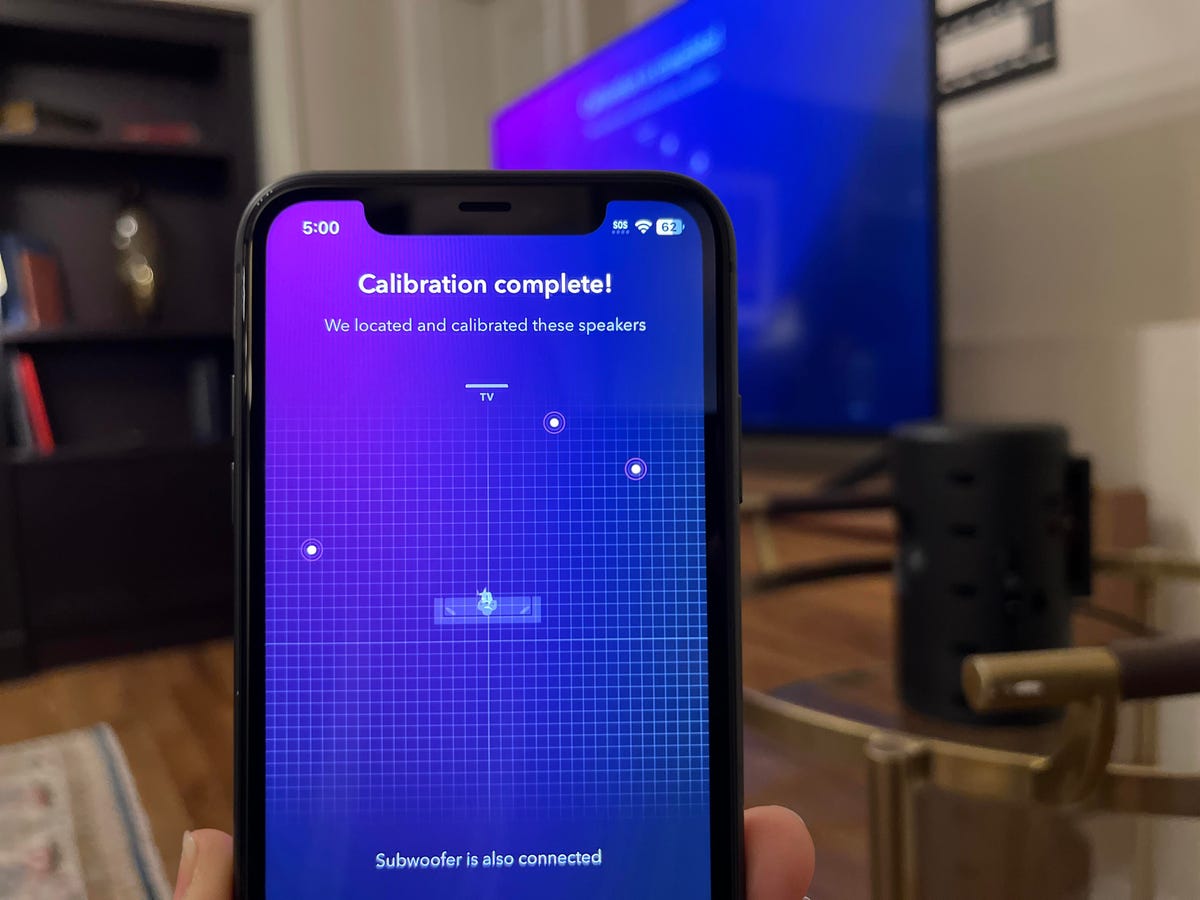
The author kicks back to the dulcet tones of a Dolby Atmos Flex Connect-calibrated TV and speakers.
Not everybody wants a bunch of speakers in the living room, and to make matters worse, a traditional surround sound system requires them to live in specific places. Center speakers go above or below the TV, fronts to either size and rears at the back corners of the room. But what if there’s a doorway or open space right where a speaker should go? Dolby will soon have an app for that.
The audio company demonstrated a speaker setup system at CES 2024 called Dolby Atmos Flex Connect, and I was able to experience it myself at the company’s private demo suite. A TV at the front of the room joined three speakers placed seemingly at random, one on a bookshelf to my left and two more to my right. Dolby’s representatives handed me a phone with the demo app queued up, and I hit the “I am where I normally watch the TV” button to start the calibration process.
Following a series of simple prompts, I measured first the TV’s speakers then the other speakers by simply aiming the phone at them in turn. The phone’s mic listened to the sound from the speakers then entered a calibration mode for a few seconds. After the process finished, the message “Calibration complete!” appeared on the TV and phone along with a graphic depicting the location of the speakers in the room, and I was able to listen.
The results were impressive. Yes, I could still sort of detect the location of the speakers by listening hard, but for the most part their locations blended into a single field of sound. I appreciated that the side of the room with two speakers didn’t sound massively different from the side with one, and the low-quality TV speakers blended in nicely with the other speaker set.


Dolby’s system can locate and calibrate speakers in a room no matter where they’re placed.
Dolby says Flex Connect accounts for different performance between speakers, for example, lack of bass from TV speakers, and directs frequencies to other speakers or a subwoofer accordingly.
The demo I got was meant to show off the system and won’t appear in the market as shown. Instead, partner companies will be able to add Flex Connect to their own TVs, speakers and apps. The system will debut later this year on the high-end Hisense 110UX as well as TCL TVs. In both cases the system uses the TVs’ built-in mics, not a phone app, for calibration, but the Dolby demo I got was designed to show off how it could work with lower-end TVs that lack built-in mics. Note that the speakers themselves, in addition to the TV, would also have to be compatible with the Atmos Flex Connect.
Of course, if you just use the TV’s speakers or have a single soundbar, like many TV watchers, you won’t need the capabilities of something like Flex Connect. But if you upgrade to add more speakers, and don’t want to have to worry about exact placement, the system could be really useful.
